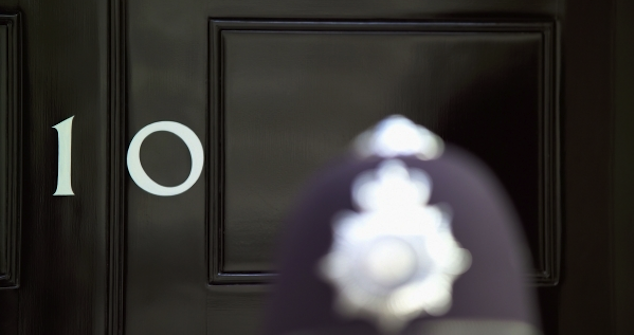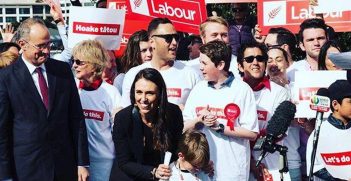The UK Election: Surprised Winners, Sad Losers

The UK’s General Election was characterised by many unexpected results, including the Conservatives winning their first majority government in 23 years.
On Wednesday 6th May – the eve of the UK’s General Election – The Sun published the findings of a poll which suggested that Britain’s two largest political parties, Labour and the Conservatives, were “neck and neck” heading into the polling day. On Friday 8th of May, the UK woke up to the reality that the Conservatives had won their first majority government since 1992.
The polls and the forecasters
So how did this happen? In 1992, the inaccuracy of the polls was put down to what became known as the “shy Tory” phenomenon – the reluctance of polled individuals to admit that they were planning to vote Conservative due to the stigma attached to the party. Interestingly, one of the pollsters implicated in the 1992 debacle, Peter Kellner, recently argued in an interview with The New Statesman that the discrepancy between the polls and the final result was the result of the organisations underestimating the extent of class change during the Thatcher era. The British Polling Council has announced an inquiry into the way the election was handled by the organisation, but this result has already seen the “shy Tory” theory regain credibility.
The winners
The Conservatives won 36.9%, which under the UK’s First-Past-the-Post electoral system translated into a small but workable majority of 16. Generally, governments seeking re-election in the UK don’t tend to gain new seats. That the Conservatives were able to do so speaks volumes about both Labour’s weakness and the Conservatives’ strength in England. The majority of their gains were made in Southern England, where they also essentially routed the Liberal Democrats, their coalition partners.
However what transformed the night from a good one into an extraordinary one was their success in Labour/Conservative marginals in both England and Wales, where they largely defended their seats against Labour and added some new ones. Indeed, the most remarkable moment of the night came when it emerged that the Shadow Chancellor, Ed Balls, was to be deprived of his marginal Yorkshire seat – a scalp they had long coveted.
Credit for the victory has been shared widely, but the Australian Lynton Crosby – well known in Australia for masterminding John Howard’s election victories for the Australian Liberal Party – will get more than most. It was his strategy of stressing “competence” over the supposed “chaos” of a Labour/SNP partnership and his often reductively simple messaging on the economy and leadership that seemed to achieve the desired “cut through” with key voter demographics.
Now the Conservatives will govern alone and top of their agenda will be paving the way on the UK’s membership of the European Union, pending a renegotiation of the terms of membership. This may take place as soon as 2016 and though polling suggests that the UK would opt to remain, a fraught and no doubt misleading debate about the drawbacks and benefits of the current arrangements looks set to dominate the next year at least.
Their second priority will be redrawing the UK’s parliamentary boundaries to remove a perceived bias towards the Labour Party. This was attempted in 2012/13, but the Liberal Democrats vetoed the necessary legislation from within government in retaliation for the Conservatives’ inability to deliver House of Lords reform. A heated debate took place as to the fairness of the proposals at the time, but the fact that the election result saw the Conservatives winning 51% of seats from 37% of the vote, with Labour winning 36% of seats from 30% of the vote seems to have done little to deter them from their plans.
The night’s other big winners were the Scottish National Party, who won 56 of 58 seats in Scotland, the vast majority of which came at the expense of the Labour Party – once Scotland’s dominant political force. Labour, the Conservatives and the Liberal Democrats were reduced to one seat apiece, in an unprecedented rout of the unionist parties. The die was cast during last September’s referendum on Scottish independence, when Labour fronted – along with the hated (at least north of the Border) Conservatives – the cross-party Better Together campaign for a “No” vote. Ultimately, the SNP was seen as the strongest advocates of Scottish interests at the Westminster level, riding a tide of nationalist sentiment which was piqued further by David Cameron’s decision to stoke English resentment of Scotland in the wake of the referendum.
The losers
Labour, perhaps unsurprisingly in the context of their extraordinary defeat in Scotland, managed to see a net reduction of their seats in the House of Commons. That some of these were lost to the Conservatives underlines just how bad a night this was for Ed Miliband, who on Thursday had entertained notions of becoming Prime Minister, but by Friday he was merely another member of the failed leaders club, having opted to resign when the scale of his defeat became apparent. The party’s inability to make almost any inroads whatsoever in the key Labour-Conservative marginals consigned the party to another period in opposition and they must do so under a new leader.
Labour now faces a huge choice. Having been forced to give ground to the Conservatives on public spending (basically accepting the need for large cuts in public expenditure), it now looks set to do likewise on the rest of economic policy, dropping demands for new taxes on high earners and the mish-mash of measures designed to bring about a more “responsible capitalism”. Add in the party’s new found hawkishness on immigration and it is possible to envisage a party which differs little in substance in its policy prospectus from the Conservatives – a situation which creates its own set of problems. The party will now hold a leadership election, when the scale of its reinvention will become apparent.
The biggest losers of the night however were the Liberal Democrats. Previously coalition partners of the Conservatives, they haemorrhaged support to Labour in the North of England, the SNP in Scotland and the Conservatives in the South of England. Senior ministers dropped like flies; the Business Secretary Vince Cable lost to the Tories in Twickenham, the Chief Secretary to the Treasury Danny Alexander lost to the SNP in Inverness and the Justice Minister and former Deputy Leader Simon Hughes lost to Labour in Bermondsey, South London. The party has now been reduced to a rump of 8 MPs in the House of Commons, including Nick Clegg, who survived in Sheffield but resigned the party leadership.
Meanwhile, UKIP polled impressively, finishing in second place in hundreds of constituencies, but only won Clacton, the seat of the former Conservative MP Douglas Carswell who defected to UKIP.
In many ways, Britain embraced multi-party politics at the election, with UKIP, the SNP and the Greens doing better than ever before. In the First-Past-the-Post electoral system, distortions and underrepresentation are sadly inevitable. The Conservatives won this election, but did so with only a plurality of voters, on a middling turnout of eligible voters.
Sean Kippin is the Managing Editor of Democratic Audit UK based at the London School of Economics and Political Science. This article can be republished with attribution under a Creative Commons Licence.



![Malcom Turnbull and Barack Obama at the White House. Photo credit: By Official White House Photo by Pete Souza [Public domain], via Wikimedia Commons Malcom Turnbull and Barack Obama at the White House. Photo credit: By Official White House Photo by Pete Souza [Public domain], via Wikimedia Commons](http://20.185.176.227/wp-content/uploads/2016/07/lobbying-351x181.jpg)
